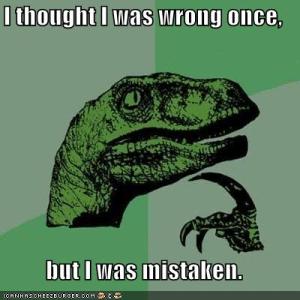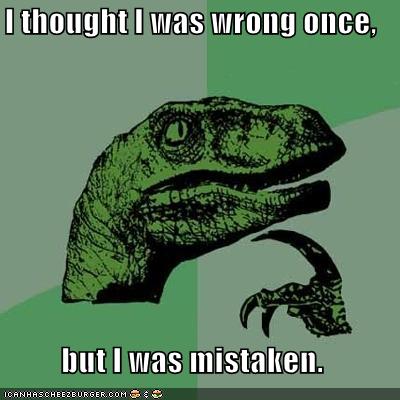 Over the last couple of weeks, I have found myself thinking about pride and the ego. There are no end of spiritual teachers who are falling all over themselves to tell us how awful pride and ego are. How they are the root of suffering. How they separate us from God and set us up for a fall. That we can’t live freely and fully until they are driven from our psyche or at least neutralized.
Over the last couple of weeks, I have found myself thinking about pride and the ego. There are no end of spiritual teachers who are falling all over themselves to tell us how awful pride and ego are. How they are the root of suffering. How they separate us from God and set us up for a fall. That we can’t live freely and fully until they are driven from our psyche or at least neutralized.
All of that is true, I suppose. But every time I read something about how awful our ego and pride are, I find that it just doesn’t resonate with me. I don’t find it helpful at all, frankly. Which is why I have been thinking and meditating on it recently. What are other people seeing that I am not?
I’ve come to the conclusion that the reason that all the railing against ego and pride doesn’t resonate is because it’s lacking in compassion towards poor, frightened, misguided ego and pride. Ego and pride aren’t our enemies to be fought and resisted, it seems to me. Rather they are parts of ourselves which are doing their best to survive in a world where we are lost, confused and frightened.
I first became aware of the power of pride and ego in my teens. I’ve always had an insatiable thirst for knowledge and understanding. But I had started to recognize that it was unreasonably painful to be wrong. It was actually hard to grow and learn new things because doing so meant facing my imperfections and errors. For some reason, the idea that I was wrong was often unbearably painful.
I realized that this was, first of all, ridiculous. The expectation that I would know everything and not need to grow and be right in all my thoughts and opinions at 16 was absurd. Logically, I could see how dumb this gut level reaction to things which challenged me was.
The other issue was that even at that age, it was my plan to continue learning and growing until the day I died. I seriously would say, even back in high school, that I looked forward to aging because I was excited to see what I would know and learn by then. (I’ve always been weird, yes.) Having to deal with this internal resistance and pain every step of the way was going to be a real problem.
As I thought about the problem, I realized that there was something really deep in me which felt it wasn’t OK to be wrong. That my worth as a human being was dependant on having it all together. I realized that there was a part of my psyche which was afraid that I was always in danger of being exposed as damaged, wrong, unworthy and therefor unlovable. It was this part of me which found the experience of changing or being wrong an intolerably painful threat.
I saw that pride was, for all its bluster and bravado simply the tool that the broken part of me threw up in an attempt to protect itself. It was strong, yes. But brittle. It didn’t like being challenged and did its best to remain invisible. The trick, I realized was to get it to relax. To let the broken part of me know that it was OK. If I am wrong, that’s OK. It’s not a threat.
“There’s no harm in considering a new idea,” I would tell it. “Let’s just ask ‘what if?’ and see what it would look like. Maybe we’ll even like it better than what we’re working with right now.”
In time, my pride became less forceful. My ego started to feel more comfortable and confident. It didn’t feel like it needed to be protecting itself and me all the time. Rather than fighting pride and ego, I began eagerly looking for signs that they were having a hard time. When ego and pride get prickly, that means there was something just itching to be healed or some false belief just dying to be soothed away.
Many people speak of dying to pride and ego. But I really prefer to view it as healing pride and ego. And yes, it does often feel like dying. Healing often does.
Sometimes ego and pride still cause problems for me. I have a persistent problem recognizing when I need to just acknowledge someone else’s feelings rather than arguing that they shouldn’t feel them, for example. I know that I don’t have as much joy in my life as God intends because my pride tells me the things meant to bring me joy aren’t important or impressive enough.
I hope that one day I’ll be healed and whole enough that ego and pride will just relax and melt into the rest of me. But in the meantime, they don’t frighten me. Sure they represent sin. But Jesus died for all that. I don’t need to deny their existence in order to look good – to myself or others. I refuse to blame them for all my suffering or think that they are an enemy to be vanquished. They’re just a sign that I’m still in the process of being redeemed. And a tool to be used to that end.
So my advice is this: if you’ve been convinced that ego and pride are a threat, an enemy and the source of your suffering, please reconsider. Might it not be that ego and pride are just as much the result of your suffering as the cause? That they are as deserving of compassion as anything in human existence? And that when you befriend rather than fight them, they can be valuable tools and allies in your quest to be conformed to the image of Christ in you? It’s been my experience anyways.


“Many people speak of dying to pride and ego. But I really prefer to view it as healing pride and ego. And yes, it does often feel like dying. Healing often does.” Exactly spot on, Rebecca! Been reading “The Rabbi’s Heartbeat” by Manning in which he talks about our “imposter self” (i.e. hiding behind defenses of pride & ego & performance born of fear): “Hatred of the imposter is actually self-hatred. The imposter and I constitute one person. *Contempt for the false self gives vent to hostility, which manifests as general irritability – an irritation at the same faults in others that we hate in ourselves. *Self-hatred always results in some form of self-destructive behavior…Accepting the reality of our sinfulness means accepting our authentic self (then, healing is possible). Judas could not face his shadow self; Peter could.” Whew, that combined with your post reallly hit home for me. As Brennan, and others, have said, “What is denied cannot be healed.” Thank you, Rebecca! Appreciate you!!!
LikeLike
Everything has a “dark” or disordered side.
Individualism is the corruption of individuation and there is a healthy self-respect pride and a disordered arrogant pride.
Sometimes the more gifted a person is the more disordered his or her personality is. We see that in the tortured lives of so many of our more creative artists and scientists. The brighter the light, the darker the shadow.
“Those whom the gods would bless, they first drive mad.”
“For the Almighty God, who, as even the heathen acknowledge, has supreme power over all things, being Himself supremely good, would never permit the existence of anything evil among His works, if He were not so omnipotent and good that He can bring good even out of evil. For what is that which we call evil but the absence of good?” – Augustine, Enchiridion (Marcus Dods translation, 1876)
“God judged it better to bring good out of evil than to suffer no evil to exist.” ~Saint Augustine
“He who created us without our help will not save us without our consent.” ~Saint Augustine
“God provides the wind, but man must raise the sails.” –St. Augustine
“Humanism was not wrong in thinking that truth, beauty, liberty, and equality are of infinite value, but in thinking that man can get them for himself without grace.” –Simone Weil
LikeLike
Reblogged this on James’ Ramblings.
LikeLike
First, this reminded me of something Erich Schiffmann said:
—
it is not egocentric to be appreciative of the creative energy that you are. Nor is it arrogant, presumptuous, or conceited to feel good inside about yourself, or to be happy for no apparent reason, or to acknowledge that you are a perfect creation of the God Force.
You understand instead that it is egotistical and arrogant to believe anything else, for you are not a self-created separate energy. It is not any more narcissistic (in the pejorative sense) to experience self-love or self-appreciation than it is to appreciate a lovely flower or a spectacular sunset. The wonder and beauty of you is not your doing, and appreciation will be the natural response of anyone who realizes this truth.
————-
[Me again]:
& yes, I still hate the feeling of finding out I’ve been wrong. Only worse thing would be if I didn’t find out, so I hope to welcome that feeling some day, maybe…
We really want to have Truth, and that’s a good desire. (As someone or other, and a few other people, once said: Desires come from God, and are basically good. [But they don’t necessarily mean we should do what we’re thinking they mean; we need to look for the real need they’re standing in for.])
That painful shame and guilt from finding out I’ve been wrong about something — All I can say about it is ‘OW!’
——-
& there’s also somebody’s Zen saying: “Everything is perfect; and some things could use a little improvement.”
LikeLike